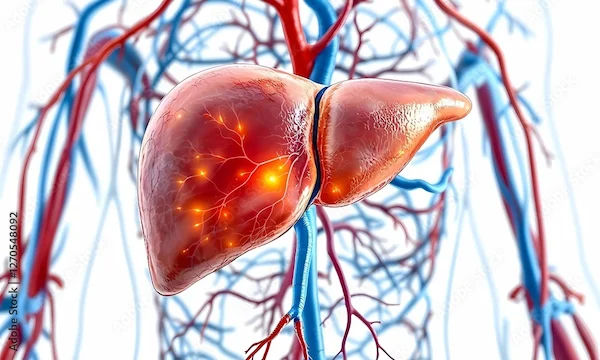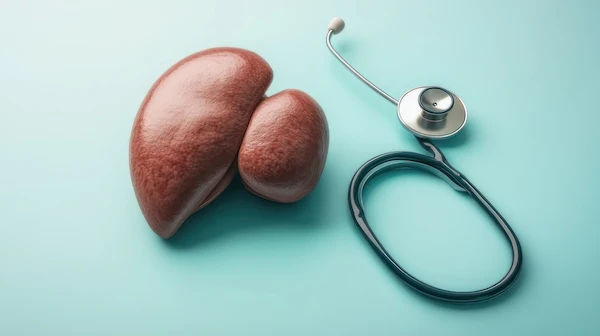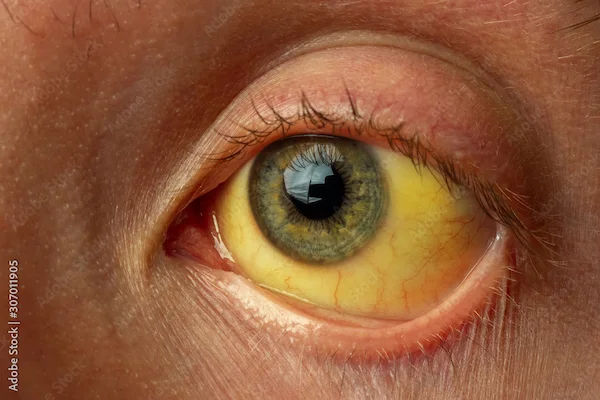Liver Transplant Causes
Learn about the leading causes of liver failure that may require a liver transplant, including cirrhosis, liver cancer, genetic disorders, and acute liver injury.

Written by Dr. D Bhanu Prakash
Reviewed by Dr. Shaik Abdul Kalam MD (Physician)
Last updated on 21st Jul, 2025

If you or a loved one has been advised to consider a liver transplant, it’s natural to have questions and concerns. Understanding the causes that lead to liver failure and the need for a transplant can help you make informed decisions about your health.
This article explains the common reasons why a liver transplant may be necessary, how these conditions affect the liver, and what steps you can take to manage liver health.
Consult Top Specialists for Personalised Liver Health Advice
Why Might Someone Need a Liver Transplant?
A liver transplant becomes necessary when the liver is severely damaged and cannot function properly. The liver is a vital organ responsible for:
- Filtering toxins from the blood
- Producing bile for digestion
- Storing energy
- Helping with blood clotting
When the liver fails, it can be life-threatening. Here are the most common causes that lead to liver failure and the need for a transplant:
1. Chronic Liver Diseases (Cirrhosis)
Cirrhosis is the most common reason for a liver transplant. It occurs when healthy liver tissue is replaced by scar tissue due to long-term damage. Causes of cirrhosis include:
- Alcohol-related liver disease – Excessive alcohol consumption over many years.
- Non-alcoholic fatty liver disease (NAFLD/NASH) – Fat buildup in the liver due to obesity, diabetes, or high cholesterol.
- Chronic viral hepatitis (Hepatitis B & C) – Long-term viral infections that damage the liver.
2. Acute Liver Failure (Sudden Liver Damage)
Unlike cirrhosis, acute liver failure happens suddenly, often in people with no prior liver disease. Causes include:
- Drug overdose, such as excessive use of paracetamol or acetaminophen
- Poisoning from toxins or mushrooms
- Autoimmune hepatitis, where the immune system attacks the liver by mistake
3. Liver Cancer (Hepatocellular Carcinoma)
Liver cancer can develop in people with chronic liver disease. If the tumour is small and hasn’t spread, a transplant may be an option.
4. Genetic & Metabolic Disorders
Some inherited conditions can damage the liver over time, such as:
- Hemochromatosis or excess iron buildup
- Wilson’s disease, caused by excess copper in the liver
- Alpha-1 antitrypsin deficiency, which is a protein disorder affecting the liver
5. Biliary Atresia (In Newborns & Children)
This is a rare condition where bile ducts are blocked or missing, leading to liver damage in infants. A transplant may be needed if other treatments fail.
How Do These Conditions Affect Health?
When the liver fails, symptoms may include:
- Jaundice (yellowing of skin and eyes)
- Swelling in the legs and abdomen (ascites)
- Easy bruising or bleeding
- Confusion or memory problems (hepatic encephalopathy)
- Severe fatigue
If left untreated, liver failure can be fatal. A transplant may be the only option when medications and lifestyle changes no longer help.
Can Liver Disease Be Prevented?
While not all liver conditions are preventable, you can reduce your risk by:
- Limiting alcohol – Heavy drinking is a major cause of cirrhosis.
- Maintaining a healthy weight – Obesity increases fatty liver disease risk.
- Getting vaccinated – Vaccines for Hepatitis B can prevent infection.
- Avoiding unnecessary medications – Some drugs (like high-dose painkillers) harm the liver.
- Eating a balanced diet – Reduce processed foods, sugar, and unhealthy fats.
When Should You See a Doctor?
If you experience:
- Persistent fatigue
- Unexplained weight loss
- Yellow skin/eyes
- Swollen abdomen
- Dark urine
- Consult a liver specialist (hepatologist) for evaluation. Early diagnosis can prevent severe damage.
What If a Transplant Is Needed?
If your doctor recommends a transplant, you’ll undergo:
- Medical tests to assess liver function.
- Evaluation for eligibility based on overall health.
- Waiting for a donor liver from a deceased or living donor.
Apollo24|7 offers expert liver care, including consultations with top hepatologists and transplant specialists. You can book an appointment or schedule tests easily online.
Final Thoughts
Liver transplants are life-saving for those with end-stage liver disease. Understanding the causes helps in early prevention and treatment. If you suspect liver problems, seek medical advice promptly.
Need help? Consult an Apollo specialist today for personalised guidance on liver health and transplant options.
Consult Top Hepatologists
Consult Top Specialists for Personalised Liver Health Advice

Dr. Sushith C
General Physician
2 Years • MBBS
Bengaluru
PRESTIGE SHANTHINIKETAN - SOCIETY CLINIC, Bengaluru

Dr. Aakash Garg
Gastroenterology/gi Medicine Specialist
12 Years • MBBS, DNB (Medicine), DrNB (Gastroentrology).
Bilaspur
Apollo Hospitals Seepat Road, Bilaspur
(125+ Patients)

Dr. Aswin S. Krishna
Hepatologist
10 Years • MBBS, MD (Internal Medicine,MMC), DM (Hepatology, MMC), PDF(Fellowship in Liver Transplanatation)
Chennai
Apollo Hospitals Greams Road, Chennai
(100+ Patients)

Dr. E Prabhakar Sastry
General Physician/ Internal Medicine Specialist
40 Years • MD(Internal Medicine)
Manikonda Jagir
Apollo Clinic, Manikonda, Manikonda Jagir
(125+ Patients)

Dr. Madhu Sudan Modi
Surgical Gastroenterologist
35 Years • Gold Medalists. MBBS (Hons.), MS (Surgery), DNB (Surgical Gastroenterology), FRCS (England), MRCS (England), FACS (USA), FHPB (Germany), FLTx (Korea & UK), FMAS, , PDCC (TMH Mumbai). Senior Consultant - GI Surgery, GI Cancer, Laparoscopy, Hepato-Biliary-Pancreatic & Liver Transplant Surgeon.
Bhubaneswar
Apollo Hospitals Old Sainik School Road, Bhubaneswar
Consult Top Hepatologists

Dr. Sushith C
General Physician
2 Years • MBBS
Bengaluru
PRESTIGE SHANTHINIKETAN - SOCIETY CLINIC, Bengaluru

Dr. Aakash Garg
Gastroenterology/gi Medicine Specialist
12 Years • MBBS, DNB (Medicine), DrNB (Gastroentrology).
Bilaspur
Apollo Hospitals Seepat Road, Bilaspur
(125+ Patients)

Dr. Aswin S. Krishna
Hepatologist
10 Years • MBBS, MD (Internal Medicine,MMC), DM (Hepatology, MMC), PDF(Fellowship in Liver Transplanatation)
Chennai
Apollo Hospitals Greams Road, Chennai
(100+ Patients)

Dr. E Prabhakar Sastry
General Physician/ Internal Medicine Specialist
40 Years • MD(Internal Medicine)
Manikonda Jagir
Apollo Clinic, Manikonda, Manikonda Jagir
(125+ Patients)

Dr. Madhu Sudan Modi
Surgical Gastroenterologist
35 Years • Gold Medalists. MBBS (Hons.), MS (Surgery), DNB (Surgical Gastroenterology), FRCS (England), MRCS (England), FACS (USA), FHPB (Germany), FLTx (Korea & UK), FMAS, , PDCC (TMH Mumbai). Senior Consultant - GI Surgery, GI Cancer, Laparoscopy, Hepato-Biliary-Pancreatic & Liver Transplant Surgeon.
Bhubaneswar
Apollo Hospitals Old Sainik School Road, Bhubaneswar



